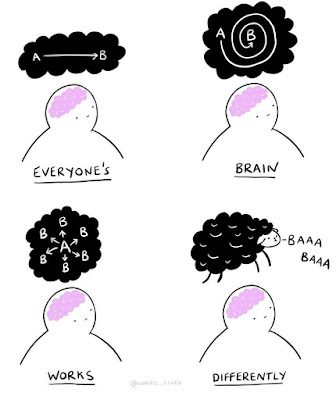All human beings are equally intelligent: How are you intelligent?
We are used to thinking of intelligence as something that can be measured; however, as science allows us to know the human body and, specifically, the human brain better, the idea that intelligence can be given a number that differs from human being to human being, gets more and more obsolete.
Neuroscientist and former Chairman of the Department of Physiology & Neuroscience at NYU, Rodolfo Llinás, has noted that, “it is impossible to precisely describe all the aspects of the human intelligence, much more to give it a number.” Intelligence, Llinás points out, is the ability of the human brain to abstract to simplify. It is a universal property of the human brain, he says; and adds that it goes beyond humans: “All animals with a complex nervous system have the same capacity.” He brings out the fact that all human brains are different, therefore, they all work differently. That diversity, we know from biology, is essential for life.
Sir Ken Robinson, the late and internationally known British advisor on education, brilliantly suggests in his book The Element, that instead of asking “how intelligent we are?" we should ask “how are we intelligent?”. It makes sense. After all, we are all intelligent!
In his Theory of Multiple Intelligences, Howard Earl Gardner, a developmental psychologist and the John H. and Elisabeth A. Hobbs Research Professor of Cognition and Education at the Harvard Graduate School of Education at Harvard University, proposes "the differentiation of human intelligence into specific 'modalities of intelligence', rather than defining intelligence as a single, general ability.” Then, again, the question is not if we are intelligent or not, or how intelligent we are, but how are we intelligent.
Zen master Thich Nhat Hanah tells a metaphor of what happens between the fingers of the same hand to refer to good relationships: "The little finger doesn't suffer from an inferiority complex and say, 'I'm so small. I wish I were as big as the thumb'. The thumb doesn't have a superiority complex, saying, 'I'm more important.' Instead, there's a perfect collaboration between them." The same happens among human brains. Biologically, we are meant to collaborate.
So, tell us, How Are You Intelligent?


Online slots with three, five, six or more reels, enjoying in} with 10 to 100 paylines or 243 to 4,196 ways to win. The last great thing that demo slots supply to gamers at no cost is the opportunity to explore the bonus round obvious in choose slot 1xbet korea video games. Playing slots for actual money would possibly take £100 or more till you trigger the profitable bonuses rounds.
ReplyDelete